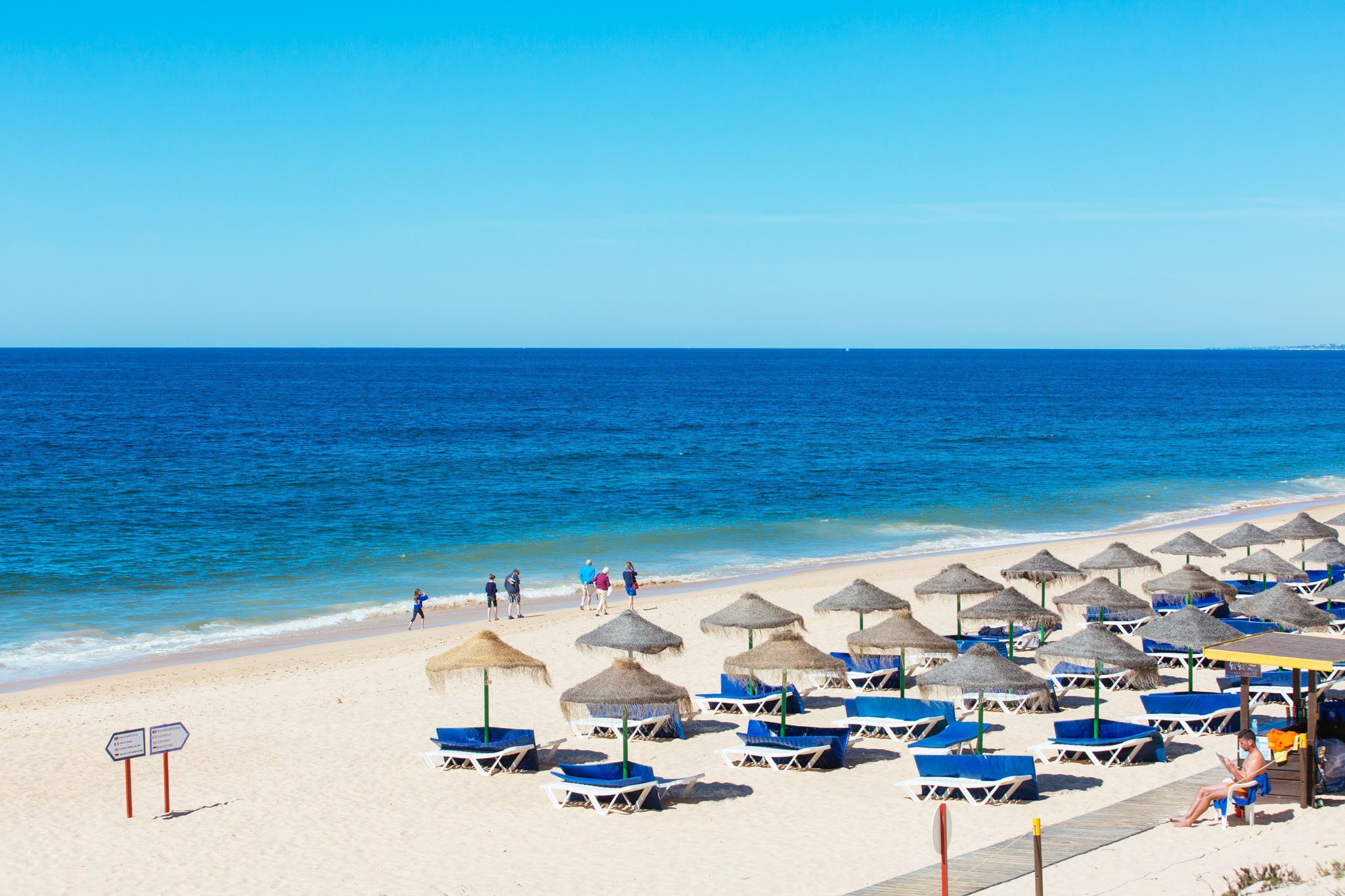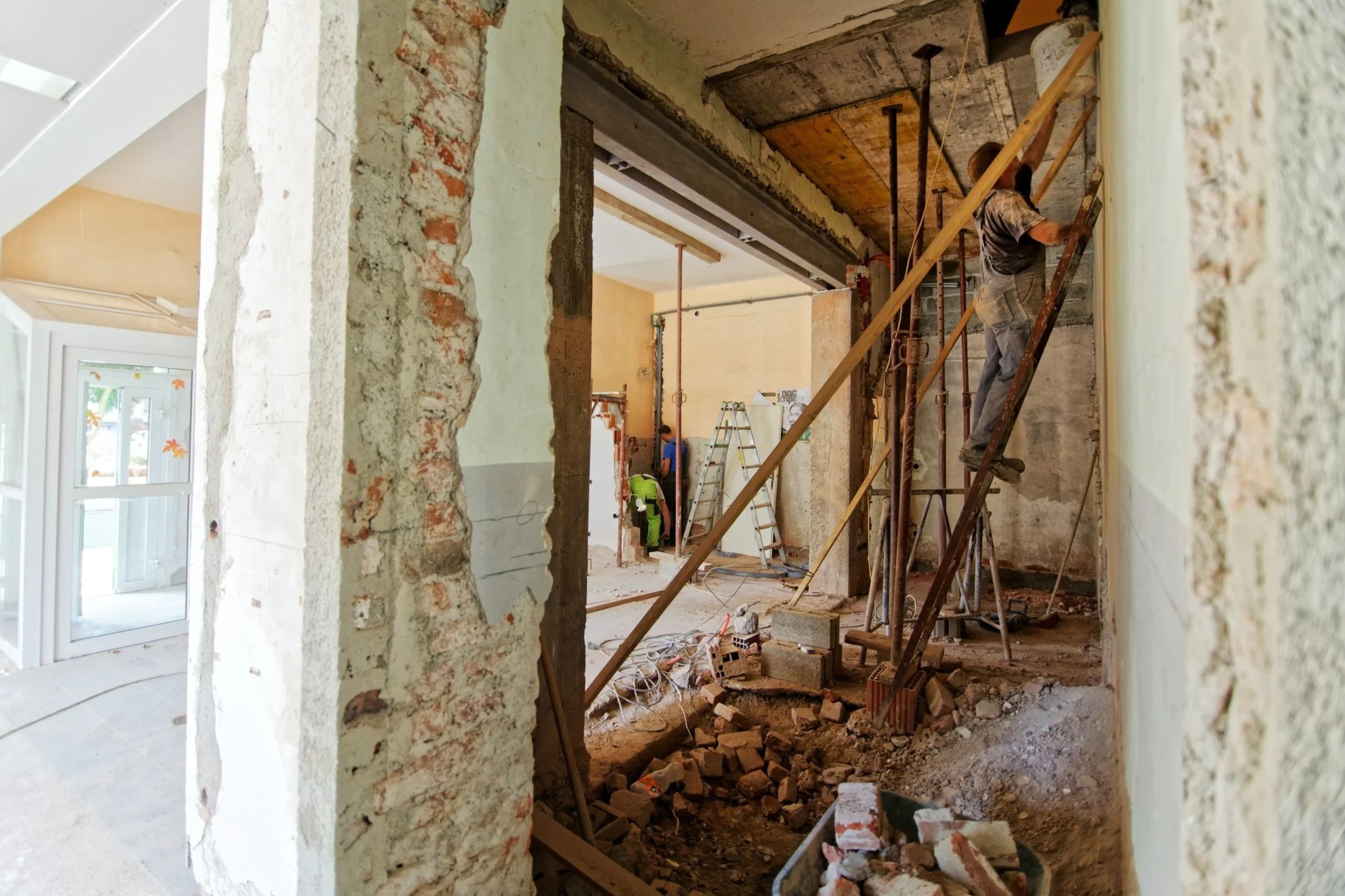Bad Things about Living in Portugal: It's not all Sunshine and Wine
A beach in Portugal.
Wanna know more about Portugal and the Portuguese life? Download our “Portugal Beckons - Book”, read by over 700 expats.
Table of Contents
Bad Things about Living in Portugal: It's Not All Sunshine and Wine
Moving to Portugal but wondering what the bad things about living in Portugal are?
We love it here, obviously, but living in Portugal has its positives and negatives, just like any other country. It’s important to consider all aspects of both before making a decision to move here.
We’ve written plenty about the friendliness of Portuguese people, the vibrant culture of Lisbon, the unique Portuguese culture, and the stunning beaches in Algarve.
You probably wouldn’t even think about moving here unless you’d heard about how Portugal is often considered a beautiful country with its appealing lifestyle, warm climate, and scenic environment. It offers a great quality of life with its (mostly) warm weather, stunning coastline, and lack of crime, but on the other hand, there are some challenges that may not suit everyone.
From the lack of insulation in houses to the cold ocean, limited job opportunities for expats living in Portugal to occasional language barriers, we’ll cover it all.
So if you’re curious about what it’s really like to live in Lisbon or the Algarve, and experience some of the less-than-ideal elements of Portuguese life, keep reading!
Housing Issues and Lack of Long-Term Rental Properties
Expensive Housing in Major Cities
Portugal, like many other European countries, can be an expensive place to live, especially for expats (and of course local people) who earn local wages. The cost of housing in major cities such as Lisbon and Porto, as well as parts of the Algarve, is one of the biggest factors that contribute to this. The challenges related to Portuguese residency, particularly the high costs associated with living in major cities and the process of obtaining residency via specific visas like the D7 Visa, aimed at financially independent foreigners, further complicate the situation.
Many Portuguese and expats alike find themselves struggling to find affordable housing options that fit their budget while living in Portugal, with some even considering neighboring Spain for more cost-effective options.
A room with a modern design.
Difficulty Finding Long-Term Rental Properties
Finding a long-term rental property in Portugal, especially in Lisbon and the Algarve, can be a challenge due to high demand and limited supply. This is especially true for those looking for properties in popular areas, such as Lagos, or near city centers. Many landlords prefer short-term rentals to maximize profits, making it harder for those seeking long-term housing options.
Preference for Short-Term Rentals
Many landlords in Portugal prefer short-term rentals over long-term ones because they can charge much higher rates during peak tourist seasons. An apartment which would earn, for example, €1,000 a month as a long-term rental can easily be rented out for €250 a night in July and August in the Algarve, such is the demand from tourists.
Also, ironically, taxes are much lower on short-term rental income than long-term rental income.
This means that finding a long-term rental property at an affordable price can be difficult for Portuguese locals, and especially expats, who need a place to stay for an extended period of time.
Strict Rules and Regulations in Rental Contracts
Finally, rental contracts in Portugal often come with strict (and quite unusual) rules and regulations that can make it challenging for expats. For example, some landlords require tenants to pay several months' rent upfront as a deposit, which can cost a lot of money. Others may have restrictions on pets or visitors, or they may even require a guarantor from the tenant (NB. Portuguese banks sometimes do this too!!).
Despite the problems of cost, finding suitable housing options in Portugal is still achievable. One option is to consider looking outside of major cities where prices may be more reasonable compared to other European countries.
Central Heating and Insulated Houses are Rare in Portugal's Cold Winters
The ‘Cold' Winters
OK, living in Portugal isn't Canada cold. Or even UK cold. But night-time temperatures can sometimes drop close to, or below 0ºC (32ºF) in many parts of the country, snow is not uncommon in central and northern parts of Portugal, and there is even a ski resort at Serra da Estrela!
None of this would cause a problem ordinarily, if it wasn't for the housing… (read on)
Lack of Central Heating
Nearly all homes in Portugal do not have a central heating system installed, which can make winters uncomfortable for residents. One of the most significant drawbacks of living in homes without central heating is the time it takes to warm up the house. The cost of heating individual rooms can add up quickly, making it difficult to afford other things in life. The lack of central heating can also impact one's quality of life, as staying warm and healthy inside your home during the colder months becomes a challenge.
Often, ironically, in the winter, people in Portugal tend to go outside to warm up.
Poor Insulation
Another problem that affects many Portuguese homes is poor insulation, leading to heat loss and higher energy bills. The lack of proper insulation not only costs homeowners more money over time but also makes it difficult to maintain a comfortable temperature inside the house.
Health Implications
The lack of proper heating can be a problem during colder times. Exposure to cold temperatures for prolonged periods can lead to hypothermia, which can affect people's life, especially among older adults and children. It can also worsen respiratory things such as asthma or bronchitis.
Living in Portugal in a house without central heating or proper insulation can be challenging for people during winter. Something that can make life easier is having things like portable heaters, electric blankets, or even wearing multiple layers of clothing indoors.
A property in renovations.
Employment Market and Lack of Jobs
Limited Job Opportunities in Portugal
One of the challenges of life in Portugal for job seekers is the limited job opportunities. The country has a high unemployment rate compared to other European countries, which makes it challenging for both expats and Portuguese people to find work. Many industries have poor wages, and the minimum wage is also low, making it difficult to make ends meet over time. This situation can be frustrating for people who need to support themselves and their families in their daily life.
High Unemployment Rates and Lack of Work Options
The employment market in Portugal, a Portuguese country, is not very favorable, with many people struggling to find jobs. The unemployment rate in Portugal was 7.1% in 2020, which is higher than the European Union average of 6.6%. This means that there are fewer job opportunities available for those seeking employment. For those of us living in Portugal, finding work can be challenging compared to other countries.
Low Minimum Wage and Poor Wages in Some Industries
Portugal's minimum wage is €825 per month, which is a challenge for many Portuguese people to sustain their life, especially since rents have dramatically increased in Lisbon and the Algarve. Moreover, some industries pay even less than the minimum wage, making it difficult for workers to make ends meet.
Difficulties for Immigrants to Find Work Due to Language Barriers and Discrimination
Immigrants from other countries often face additional challenges when trying to find work in Portugal due to language barriers and discrimination. Many Portuguese employers require applicants to speak fluent Portuguese (which is fair enough really, as we are in Portugal!!), but this can be difficult for non-native people. Less commonly, immigrants may experience discrimination during the hiring process or at work, affecting their life in Portugal.
For Hire sign.
Frustrating Portuguese Bureaucracy Processes in Portugal
Slow and Inefficient Processes
Living in Portugal with bureaucratic processes in Portugal can be frustrating and time-consuming for people, especially those who are not used to the Portuguese way of doing things. Compared to other European countries, Portugal's bureaucratic processes are slower and less efficient which can make it difficult to get things done. This can be a challenge for expats who are used to more streamlined processes in their home countries or other Mediterranean countries.
For example, getting a residence permit in Portugal, like many other portuguese countries, can take several months due to the slow process of gathering documents, scheduling appointments, and waiting for approvals. The same goes for opening a bank account or registering a car, which can take longer than expected for us people due to inefficient bureaucracy.
Complicated NHR Tax Regime
Don't get us wrong. The tax regime is a fantastic, attractive incentive for people from other countries looking to move to Portugal.
However, navigating the bureaucratic processes involved with this tax regime can be complicated and confusing. Expats may find it challenging to understand the requirements and regulations that come with the NHR tax regime, making it difficult for them to get the benefits they are entitled to, and their only option is often to hire a tax accountant who costs more than the benefits they can gain anyway.
Getting proper guidance on how to navigate through the complex bureaucracy involved with this tax regime is often challenging. Moreover, customer service in government agencies responsible for handling these matters is often lacking, making it even more difficult for expats to get the assistance they need.
Lack of Customer Service
Another major issue with bureaucratic processes in Portugal is the lack of customer service provided by government agencies, which can be frustrating for both Portuguese citizens and expats living in the country. This issue is not unique to Portugal, as many countries also struggle with providing adequate customer service to their people.
For instance, when dealing with paperwork related to residency permits or visa applications, people from different countries, including Portuguese, often struggle to get the necessary information and support. There is often no clear point of contact or dedicated customer service representative available to help guide expats through the process. This lack of support can lead to confusion and frustration among expats trying to navigate through complex bureaucratic procedures.
Strangely, people who work in bureaucratic positions are notorious for not being able to speak English at all, which is odd because most of the rest of the population of the country speaks it wonderfully!
A pile of papers.
Language Barrier as a Challenge for Expats in Portugal
Communication Difficulties with Portuguese People
Firstly, let's put this into perspective.
Most Portuguese people speak at least some English, and many speak fantastic English. Certainly better than the level of the Portuguese language that most expats from the English-speaking world can speak.
So, we shouldn't complain. However… Many expats from different countries find the language barrier to be a significant challenge when trying to get settled in Portugal, especially if they live outside of Lisbon, Porto or the Algarve.
Portuguese people are not always fluent in English, which can make communication difficult. This can lead to frustration and misunderstandings, especially when, as mentioned above, you need to deal with important bureaucratic matters.
Cultural Differences Amplify Language Barriers
In addition to linguistic challenges, cultural differences can also amplify the language barrier for expats in Portuguese-speaking countries. For example, in Portugal, it is common for people to speak very quickly and use idiomatic expressions that may not translate well into other languages. This can make it even harder for expats to get what is being said.
Overcoming the Language Barrier
Despite the language barrier in Portugal, expats from different countries can get help from the people around us while living in Portugal. One option is taking classes or hiring a tutor to improve their language skills. Another way is by immersing themselves in Portuguese culture and practicing speaking with locals whenever possible.
“Do you speak Portuguese?” written in a board.
Unreliable Transportation Options: Taxis and Other Public Transport
Public transportation in Portugal is often unreliable and inconsistent.
If you're planning to rely on public transportation while living in Portugal, be prepared for delays and cancellations. Buses and trains frequently late, and schedules are subject to change without notice. This can be frustrating for people who are trying to get somewhere on time or have a tight schedule.
I regularly travel between the Algarve and Lisbon on the train and long distance bus and I would estimate that we arrive on schedule approximately 50% of the time. It's never that bad, for instance, we would rarely arrive more than 15 minutes after the schedule suggested, but it can make life tricky if you have a meeting or are trying to make a flight or connecting train.
Taxis can be expensive and may not always take the most direct route.
Taxis in Portugal, especially for people who are not familiar with the area, can be challenging to navigate. Portuguese taxi drivers are notorious for taking longer routes than necessary, which can result in higher fares (although, to be honest, the fares are usually so low anyway that you might not notice). People may fall prey to these tactics and end up paying more than they should. Some taxi drivers may refuse to use their meters or charge extra fees for luggage or traveling at night, making it difficult for people to get a fair deal.
Let's be clear though. This happens everywhere and it doesn't necessarily happen in Portugal more than in other countries, but you do need to be aware as an expat, or especially as a tourist.
Driving in Portuguese cities can be chaotic and stressful, with poor road conditions and limited parking options.
Driving in Portuguese cities like Lisbon or Porto can be a nightmare for people living in Portugal due to heavy traffic congestion, narrow streets, one-way roads, roundabouts, steep hillsides, confusing signage systems, and aggressive drivers. Plus, many roads are poorly maintained with potholes and uneven surfaces that make it uncomfortable for people to get around. Finding a place to park your car is also challenging as there's limited space available for people to get their cars parked.
Compared to places like Italy or Greece, however, driving in Portugal is a breeze, but it can be quite different to what you're used to, especially if you've just arrived from Northern Europe.
Obtaining a driving license in Portugal can be a time-consuming and bureaucratic process.
If you plan on staying long-term in Portugal or want the freedom of having your own vehicle during your stay there as a US citizen, obtaining a driver's license is essential. Unfortunately, getting one as a non-Portuguese person requires navigating through bureaucratic red tape which could take up quite some time before you finally get your license.
My personal example: - I traded my UK driving license for a Portuguese license soon after I arrived in Portugal. I completed the form, paid the fee, my UK license was cut in half (after it had been photocopied, thankfully), and my Portuguese driving license arrived in the post… 16 months later.
Lisbon famous trum.
Dangerous Roads and Driving Conditions in Portugal
High Number of Road Fatalities in Portugal
Living in Portugal can be dangerous for people due to the high number of road fatalities. According to the European Commission, Portugal has one of the highest rates of road fatalities in Europe, which poses a serious risk to people's safety. In 2019, there were 675 deaths on Portuguese roads, indicating that people are at risk while traveling on the roads BUT over the last decade or so, this has got MUCH better and continues to improve.
Poor Road Infrastructure and Maintenance
The poor condition of Portuguese roads is another factor that contributes to dangerous driving conditions for people. Many roads are poorly maintained, with potholes and uneven surfaces making them difficult to navigate.
Driving after Rain
Because it is nearly always dry in Portugal, driving can be particularly dangerous during and after rain, especially if it hasn't rained for weeks or months, which is common.
During the dry spells, the roads develop a build up of oil residue, grease etc. and roads can become very slippery after the first rains.
Aggressive Driving Behavior Among Portuguese Drivers
For such a nice, kind, welcoming people, Portuguese drivers can be unusually aggressive when driving, which can make driving on Portuguese roads challenging for us foreigners. Tailgating, speeding, and weaving between lanes are common behaviors that put people at risk and get us into dangerous situations.
Limited Public Transportation Options in Rural Areas
Public transportation options outside major cities in Portugal are limited, which means that many Portuguese people living in rural areas rely on cars as their primary mode of transportation. With poor road infrastructure and regular drink-driving among locals, it can be risky for us to get around rural areas by car. Portuguese universities play a crucial role within the broader Portuguese education system, making efforts to improve educational equity and inclusion in these rural areas.
Living in Portugal has its perks; however, it’s important to acknowledge the risks associated with living here too. If you’re planning on living or traveling to Portugal soon, take extra precautions when navigating its roads to stay safe!
Lego cars.
Corruption
Corruption is an Issue in Portugal
Corruption is an issue that affects various aspects of life in Portuguese society, even if you don't see or experience it regularly in everyday life.
It can be seen in the government sector, where it's been known for public officials to engage in bribery and embezzlement, creating a lack of trust among the Portuguese society towards the government institutions.
Safety and Security Concerns in Portugal
Crime Rates and Safety Issues
Portugal is generally considered one of the safer European countries, boasting lower crime rates compared to many other European countries. However, like any place, it’s not entirely free from safety concerns. Major cities such as Lisbon and Porto, while vibrant and full of life, do have their share of crime. Petty theft, pickpocketing, and burglaries are the most common issues, particularly in bustling urban areas.
Petty Theft and Pickpocketing in Tourist Areas
Tourist hotspots like Lisbon’s Baixa neighborhood and Porto’s Ribeira district are magnets for pickpockets and petty thieves. These areas are often crowded, making it easier for thieves to operate unnoticed. Visitors and expats should be vigilant, keeping a close eye on their belongings and being cautious of their surroundings. Simple precautions, like using a money belt or keeping valuables out of sight, can go a long way in ensuring your safety.
Healthcare and Public Services in Portugal
Quality of Healthcare Services
Portugal’s healthcare system is generally well-regarded, offering high-quality services through both public and private sectors. The public healthcare system is free for all citizens and residents, including expats, which is a significant advantage. However, non-emergency procedures can sometimes come with long waiting times. On the other hand, private healthcare is available and offers quicker access to services, but it can be quite pricey.
One reassuring aspect is that many Portuguese people speak English, especially in the medical profession. This can be a huge relief for expats who might be worried about language barriers when seeking medical care. Nevertheless, learning some basic Portuguese phrases can be incredibly helpful and appreciated by healthcare providers.
Healthcare center.
Don't be Fooled by the Beautiful Turquoise. It's the Atlantic. And it's Cold!!
Not much else we can say about this.
The sea is a lot colder than it looks. Even in the height of summer.
Weighing the good things and bad things about living in Portugal
Living in Portugal has its advantages and disadvantages, just like anywhere.
While the country offers a (mostly) warm climate, beautiful beaches, and a relaxed lifestyle for people, there are some bad things about living in Portugal to consider.
From housing issues to bureaucratic processes that people may face, lack of job opportunities for people to unreliable transportation options for people, it's important to weigh the pros and cons before making a decision about moving to a country.
If you're considering moving to Portugal, it's crucial to do your research and understand what you're getting into. While there are many benefits to living in this wonderful country, it's important to be aware of the potential challenges that may arise.
Are these challenges that bad? We don't think so.
You might need to put a sweater on inside the house on a few winter nights, you'll get a bit of a shock when you jump in the ocean, and you'll wait a few months longer than you'd like for various bits of red tape to get done.
But, you get to live in a happy, kind, considerate, sunny paradise, with great people, better weather than most of the rest of the world, and some very cheap wine, so we're sure you'll survive…
Galapinhos Beach, Arrábida.
Frequently Asked Questions
Is it easy for expats to find long-term rental properties in Portugal?
It can be challenging for expats to find long-term rental properties in Portugal due to the high demand and limited supply. Some landlords may require a Portuguese guarantor or proof of income.
How cold does it get during winters in Portugal?
Portugal's winters can be quite chilly, especially at night. Central heating and insulated houses are not common either. That said, daytime temperatures in midwinter can often exceed 21ºC (70ºF), especially in the Algarve and Madeira.
What is the job market like for foreigners in Portugal?
The job market can be tough for foreigners as most employers prefer candidates who speak Portuguese fluently. There is high competition for jobs, especially those that pay a reasonable salary.
Are bureaucratic processes really frustrating in Portugal?
Yes, bureaucratic processes can be slow and frustrating at times. It's important to have patience when dealing with government agencies or paperwork-related matters. Just take a deep breath and go to the stunning beach that you live near and you realise that it isn't such a big deal.
Is language barrier an issue for expats living in Portugal?
The vast majority of expats get by with little or no Portuguese and live a happy life, and only really in rural areas can the language barrier be a challenge for expats who don't speak Portuguese fluently.
English is generally widely spoken, especially among younger generations and within tourist areas, and the Portuguese are so friendly and helpful that you can usually get by with smiles, hand waving and pointing if necessary.
Wanna explore Portugal like a local? Click below to learn more about our Portugal scouting tours.











